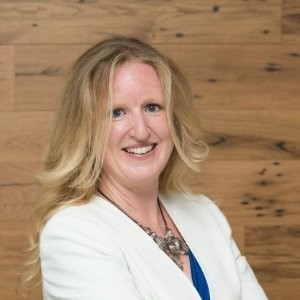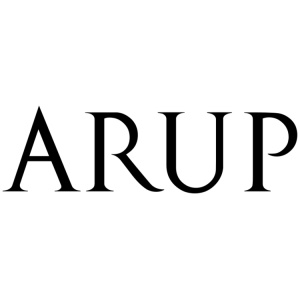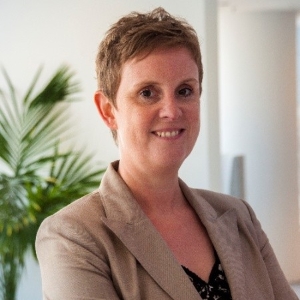Arup - Experts & Thought Leaders
Latest Arup news & announcements
The National Fire Protection Association (NFPA) will host Global Trends and Research, a one-day online program covering contemporary life safety challenges and research efforts, to ensure that practitioners have the information and knowledge to succeed in their roles. The virtual conference on Tuesday, November 2, will cover topics ranging from alternative energy solutions, green buildings, parking garages, to exterior facades. The program, the sixth in an 11-event year-long 125th Anniversary Conference Series, will feature educational sessions, presentations, and Ecosystem panel discussion, networking opportunities, live chat exchanges, sponsor demonstrations, and more. Sessions The Global Trends and Research conference can be attended on the scheduled date or registrants can access the following sessions anytime in the next year: Energy Storage Systems (ESS) Explosion Risks: Victoria Hutchison, research project manager, Fire Protection Research Foundation (U.S.),Ofodike (D.K.) Ezekoye, W.R. Woolrich professor at The University of Texas at Austin (U.S.); Adam Baroway, research engineer, UL (U.S.); Bob Zalosh, owner/SME, FireExplo (U.S.); Dirk Long, senior technical leader, Electric Power Research Institute (EPRI) (U.S.); and Sean DeCrane, industry relations manager, UL (U.S.). Impact of Modern Vehicle Hazards on Parking Garage Fire Safety:Stephen Olenick, principal engineer and Mike Klassen, principal research engineer, Combustion Science & Engineering (U.S.); Ragni Fjellgaard Mikalsen, Research Scientist, RISE Fire Research (Norway) and Anne Steen-Hansen, Chief Scientist, RISE Fire Research (available online - Norway); Ged Knock, Station Manager, Merseyside Fire & Rescue Service (U.K.); and Stuart Lloyd, Principal Risk Engineer, Zurich Risk Engineering (U.K.) Fire Safety Challenges in Low-Income Areas: Rita Fahy, Ph.D., applied research manager, NFPA (U.S.); Danielle Antonellis, founder, and Executive Director, Kindling (U.S.); Len Garis, Director of Research, National Indigenous Fire Safety Council (Canada); and Richard Walls, Professor of Structural and Fire Engineering, Stellenbosch University (South Africa) Fire Safety Challenges of Green Buildings and Attributes - Brian Meacham, managing principal, Meacham Associates (U.S.) and Margaret McNamee, Professor of Fire Safety Engineering, Lund University (Sweden) Fire Safety of Facades: Matt Bonner, research assistant, and Francesca Lugaresi, Ph.D. student, Imperial College (London); Susan Lamont, director, Fire Engineering, ARUP (UAE); and Nicholas Ozog, associate principal, WJE, Holistic Building Assessment of Facade Fire Performance (U.S.) Firefighting Foams: Transition to Fluorine Free Foams Through Research and Testing - Gerard Back, senior fire protection engineer, Jensen Hughes (U.S.). Niall Ramsden, project coordinator, LASTFIRE (U.K.); Casey Grant, executive director, DSRAE, LLC (U.S.); and Ed Hawthorne, principal, DFW Dynamics (U.S.) International Fire Safety Standards Coalition: Common Principles - Dwayne Sloan, technical director, Building & Life Safety Technologies, UL (U.S.) and Birgitte Messerschmidt, director, research, NFPA (U.S.) The Role of the NFPA Fire & Life Safety Ecosystem: Moderator Birgitte Messerschmidt, director, research NFPA (U.S.) with the following panelists: Susan Lamont, director, Fire Engineering, ARUP (UAE); Margaret McNamee, Professor of Fire Safety Engineering, Lund University (Sweden); Anne Steen-Hansen, chief scientist, RISE Fire Research (Norway); Amanda Kimball, executive director, Fire Protection Research Foundation (U.S.), Danielle Antonellis, founder and executive director, Kindling (U.S.); and Dwayne Sloan, technical director, Building & Life Safety Technologies, UL (U.S.) Fire and life safety directing pace to progress The program is designed to bring forward the latest findings in areas where the trends show increasing challenges “Research helps professionals and practitioners tackle problems around the world in an educated and enlightened manner; but research is only of value if the knowledge it creates gets into the hands of the very people who can apply new findings and implement different safety strategies on a local level,” Birgitte Messerschmidt, Director of NFPA Research said. “This program is designed to bring forward the latest findings in areas where the trends show increasing challenges. The sooner we respond to these challenges the better we can ensure that fire and life safety are keeping pace with progress.” Live and view on-demand Attendees can tune in live to earn up to five credit hours (0.5 CEU) on the day of the program and can then earn an additional five credit hours on-demand later for a total of 10 credit hours (1.0 CEU). Alternatively, the content can all be viewed on-demand later for a total of 10 credit hours (1.0 CEU). All programs will be available on-demand for up to a year starting on November 2.
Arup’s expert fire team, in partnership with Arup University, has carried out the first of a series of independent, large-scale cross-laminated timber (CLT) construction experiments at professional fire test facility, CERIB, in France. The need to construct with timber is engaging the construction industry globally. As part of Arup’s commitment to safety and sustainability, it is undertaking a series of full-scale fire experiments in a 380m combustible compartment, with input from Imperial College London, and the first experiment has now successfully taken place. Fundamental fire safety This expands current knowledge of the fire behavior of timber structure This expands current knowledge of the fire behavior of timber structures, which is currently based on tests on much smaller compartment sizes of up to approx. only 100m. The new experimental program builds on previous research and explores construction arrangements to enable the safe use of CLT in large-scale buildings, with a particular focus on the office, education, and residential sectors. This will help develop further understanding of the fundamental fire safety considerations needed to inform safe future design approaches. Arup welcomed representatives from the Fire Prevention department of the Paris Fire Brigade as observers. Results and learnings from this experimental program will be shared over the coming weeks and months.
Arup has committed to achieving net zero emissions across its entire operations by 2030, covering everything from the energy used in offices to goods and services purchased. To achieve this the firm has set a target to reduce its scope 1, 2, and 3 global greenhouse gas (GHG) emissions by 30 percent within the next five years from a 2018 baseline. The target, validated by the Science Based Target initiative, has been classified as ambitious as it exceeds the minimum requirements for keeping global temperature rise under 1.5°C. Gold Standard Arup is committing to purchasing Gold Standard certified offsets for domestic and international flights In addition, Arup is also committing to purchasing Gold Standard certified offsets for all domestic and international flights and to compensate for other residual hard-to-decarbonize emissions with high-quality, certified GHG removal from 2030. A carbon levy of $40USD per tonne is being applied to flights taken by employees in a bid to change behaviors across the firm. The proceeds will be used to establish an Arup Carbon Fund to find and invest in ways of reducing and removing carbon including supporting local community projects. Sustainable Development Arup is working with organizations including the Ellen MacArthur Foundation, the C40 Cities Climate Leadership Group, and the World Business Council for Sustainable Development to innovate and accelerate new approaches and business models to help the world decarbonize. The firm is also working with The Resilience Shift and the Global Resilient Cities Network to enhance the resilience of cities and communities to increasing shocks and stresses resulting from climate change, including drought, water scarcity, and food supply disruption. Reducing emissions with Digital technology We mustn't take our eye off the ball when it comes to reducing emissions and managing the approaching risks" Jo da Silva, Arup Global Sustainable Development Leader, commented, “While the world grapples with the COVID-19 pandemic we mustn't take our eye off the ball when it comes to reducing emissions and managing the approaching risks because of climate change." "We have taken these steps to consolidate our efforts to reduce the impact of our operations around the world. But the greatest difference we can make is through the advice and solutions we offer our clients and communities from helping city leaders take practical steps to meet the Paris Agreement, to working with property developers to understand how digital technology can reduce their resource consumption.” emissions reduction targets Cynthia Cummis, Director of Private Sector Climate Mitigation at World Resources Institute, one of the Science Based Targets initiative partners, said, “We congratulate Arup for setting emissions reduction targets that are in line with keeping global warming to 1.5°C." "By setting targets that are grounded in climate science, Arup is ensuring they are getting on the right track now to meeting their net-zero goal and are showing that ambitious climate action and good, resilient business go hand in hand."
The New Future For Fire Agencies
DownloadThe Eight Key Trends in Fire Detection in 2023
DownloadA Digital Platform to Improve Fire Safety Compliance and Inspections
DownloadOvercoming the Challenges of Fire Safety in the Paper Industry
DownloadCarbon Monoxide: Creeping Killer Caught In The Act
Download









